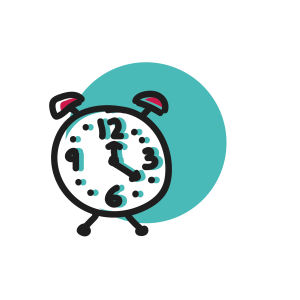Excessive sleeping in children and young people
On 8 November, some of us here at HSR Psychology attended the disabled living exhibition held by Kidz to adultz exhibitions in Manchester.
Not only did we see Spiderman…

and cool sensory pods with bright lights for children and adults alike…

but we also attended a very interesting seminar. The seminar we attended was about practical sleep strategies for children and young people with special educational needs and disabilities (SEND) given by The Children’s Sleep Charity. The seminar was so good that we were inspired to write our own blog about sleep!
Many blogs focus on children and adolescents not getting enough sleep, but what about children and adolescents who fall on the other end of the spectrum?
What about children and adolescents who sleep too much?
We have put together some useful information to help parents who have children that sleep too much. As was mentioned in the seminar we attended, sleep is a very important factor which contributes to our mood, our immune system and our memory.
Generally there is a recommended amount of sleep that individuals of different ages should be having each night:
-
- Children (6-13 years old) : 9 to 11 hours sleep
-
- Adolescents (14-17 years old) : 8 to 10 hours sleep
- Young adults (18-25 years old) : 7 to 9 hours sleep
National Sleep Foundation (2018)
As a parent, it is easy to mistake a teenager’s oversleeping as a natural reaction to puberty. It is important to note that sometimes there might be another reason why a child or teenager seems glued to their bed.
What could make a child sleep so much?
Excessive sleeping could be linked to many factors including:
Sleeping pattern
A big factor which may be influencing a child or young person’s sleep is their sleeping pattern. An inconsistent sleep routine can lead to excessive sleeping on some days. One solution to an inconsistent sleep routine is to encourage the child or young person to go to bed and wake up at the same time everyday (including weekends!).

Routine
Similarly, as well as bedtime and wake time being important, the activities leading up to bedtime can be equally as meaningful. If a child or young person has a hectic night time routine, this can result in excessive sleeping. Building a nighttime routine for the child can be helpful, for example having a glass of milk, then brushing teeth and then reading a story in bed. By creating a consistent routine, the child begins to associate sleep with specific activities, which will promote a regular sleeping pattern.
Mood
One reason why a child or young person may be oversleeping is due to their mood. If an individual has low mood or is depressed, their oversleeping may be an indicator of these emotional difficulties.
In cases where you believe that your child may have low mood, it is important to address this. If you are a parent and you worry about your child’s mental health, you can call YoungMinds on 0808 802 5544 parents helpline between 9:30am - 4:00pm Monday-Friday
Quality
When someone has a long sleep, you may think that they have had a good night’s sleep. However, sleep isn’t about quantity, but about quality. A stage of sleep called ‘deep sleep’ is very important for restoring the body. So, if a child or young person doesn’t get much deep sleep, despite how long they have slept, this can make the body crave more sleep for restoration. Adjustments to the child’s bedroom environment can help encourage deep sleep. For example, make sure the temperature of the room is about 17 degrees, and make sure the bedroom is free of lights and active electronics.
For more information on how to create the best bedroom environment for your child, you can read an interesting blog by SeHelper.
“Sleep is that golden chain that ties health and our bodies together.”
Thomas Dekker
Sleep will always be an important matter. So, it is essential that we are aware of when there are changes in a child or young person’s sleeping and what these changes might reveal. If you believe that your child is having difficulties with their sleep, please visit your GP.











